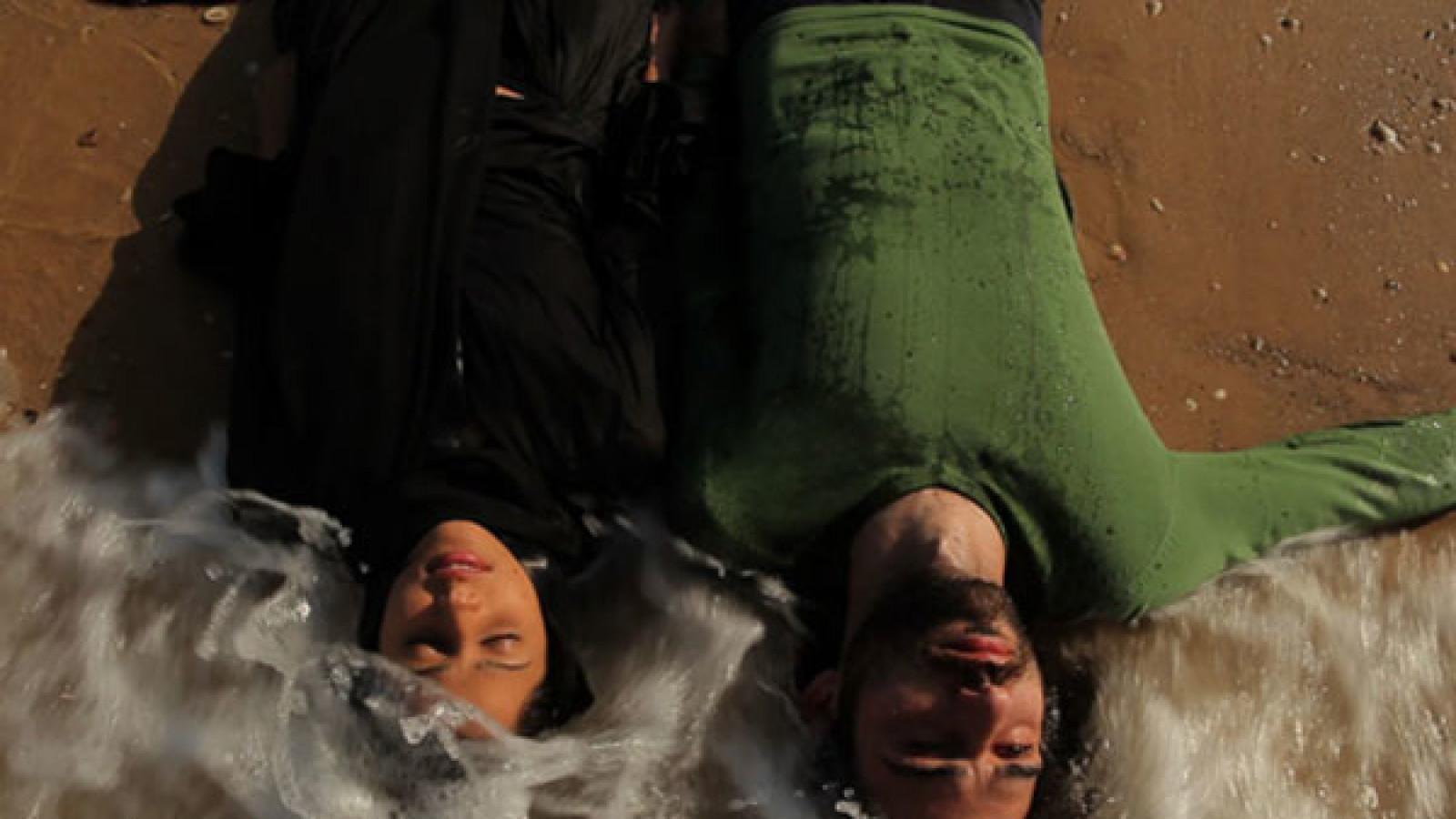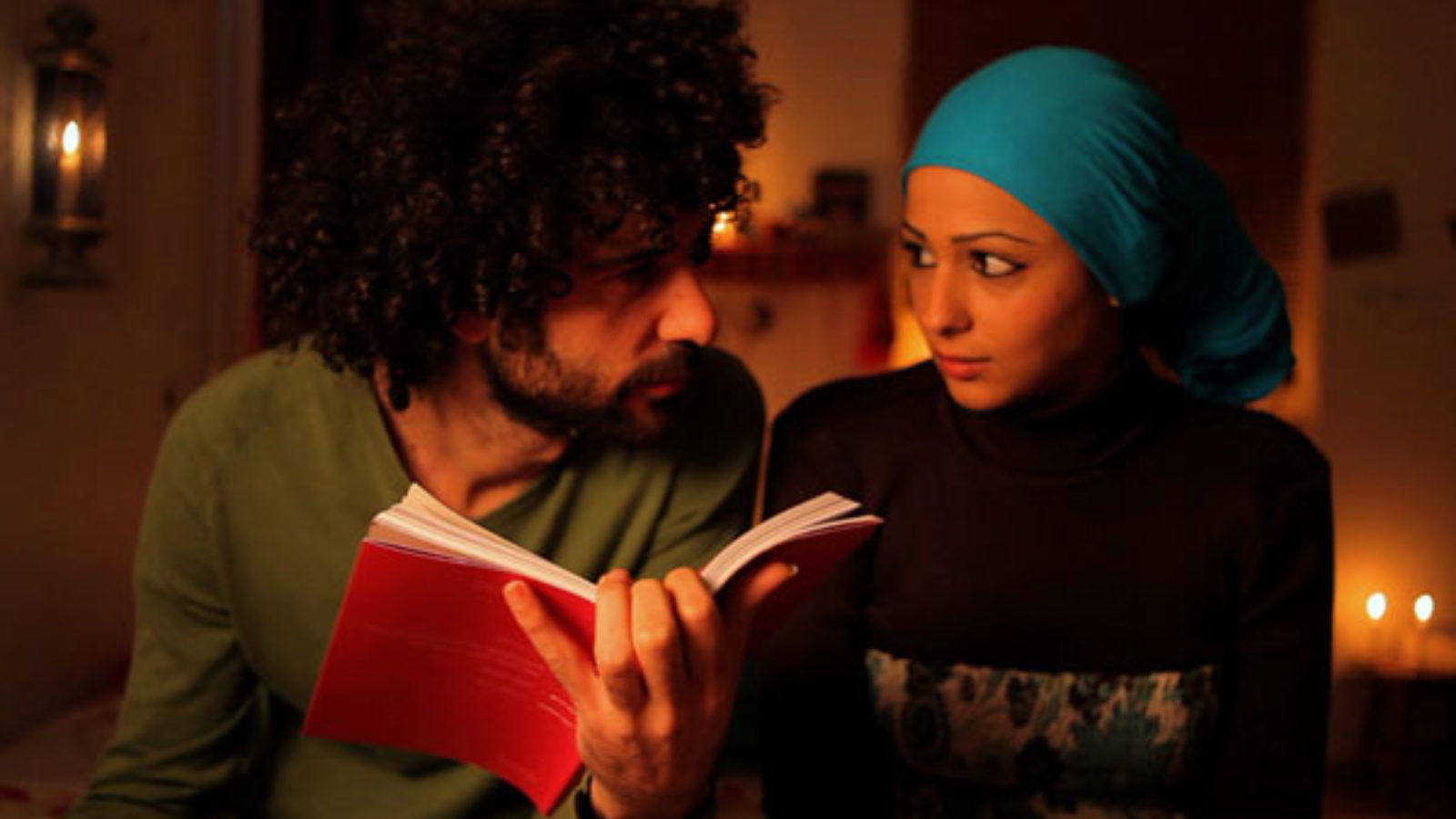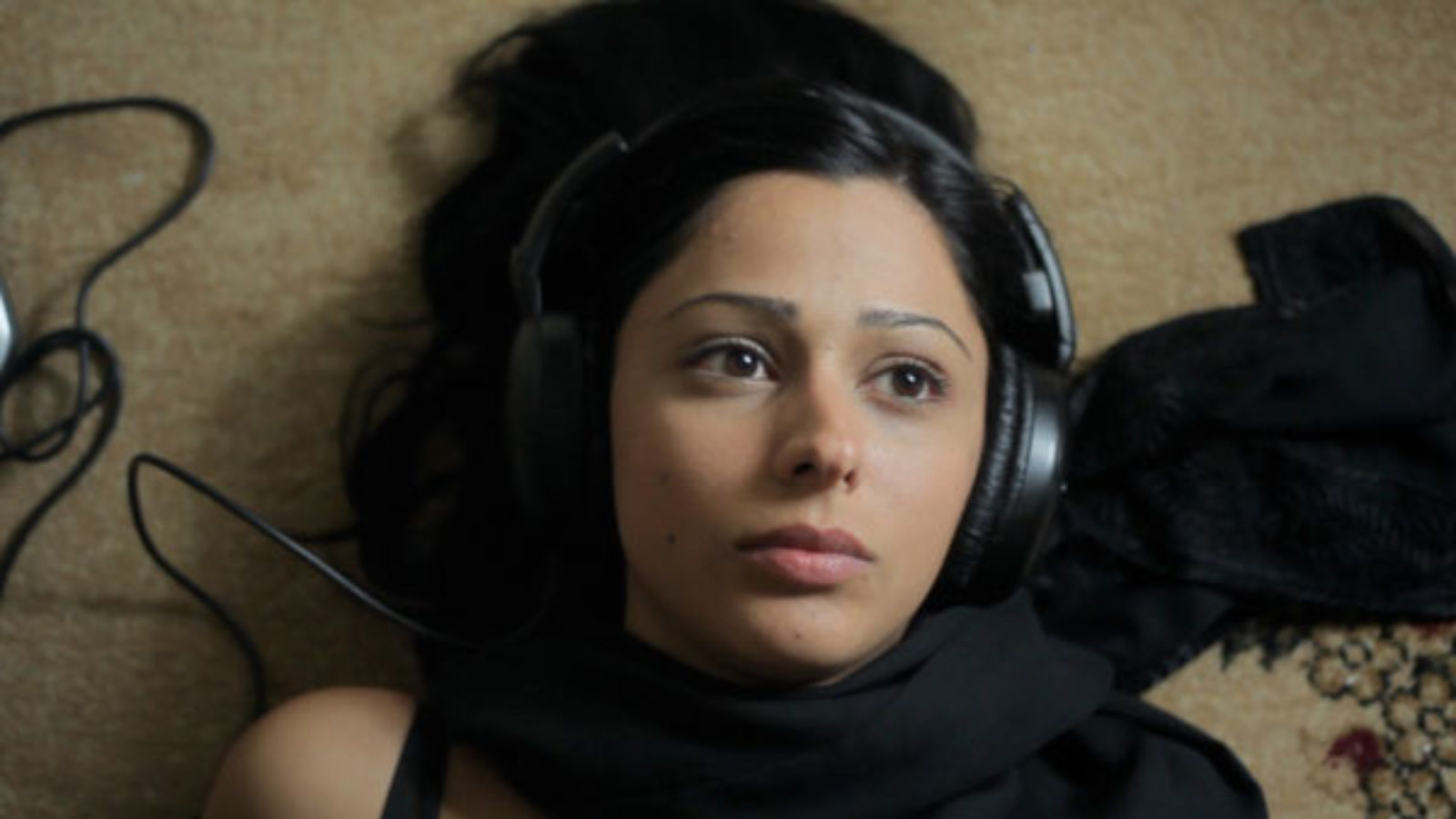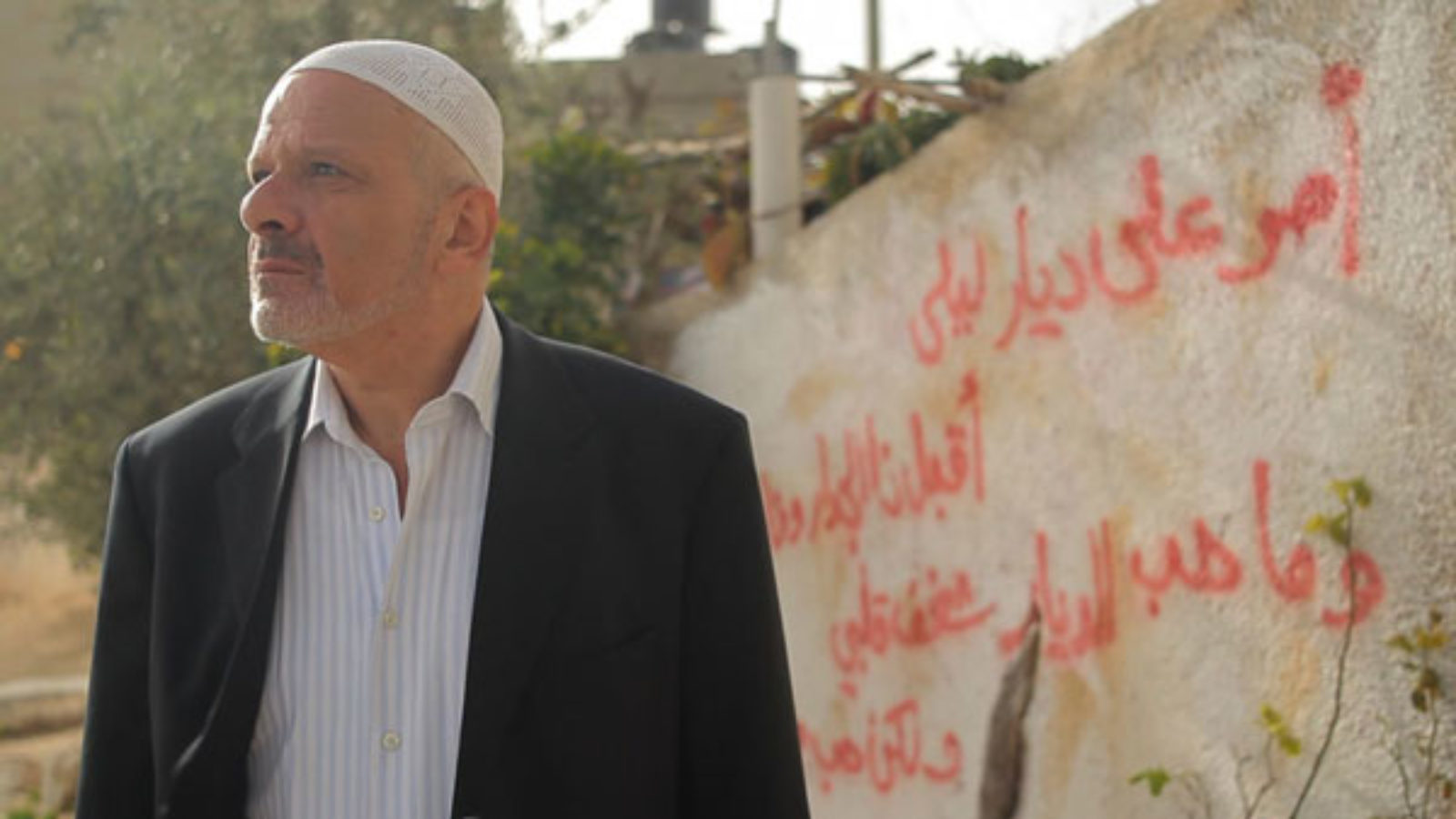Habibi
Filmmaker Susan Youssef in person at all three screenings!
Young lovers Qays (Kais Nashef) and Layla (Maisa Abd Elhadi) are university students in the West Bank who hail from Khan Yunis in Gaza. He is pursuing a degree in literature and she in engineering, but they are forced to return home before completing their courses. In the more religious and traditional environment of Khan Yunis, their love story can continue only by marrying. Yet Qays, who is a construction worker living in a refugee camp, is too poor to convince Layla’s father that he can provide for his beloved daughter. As the couple struggles to be together, Qays paints verses from the classical poem Majnun Layla all over Khan Yunis, a rebellious act that angers Layla’s father and the local self-appointed moral police. Lyrical and passionate, Habibi depicts a reality where personal happiness must be weighed against society’s opinions, and a choice sometimes made between one’s people and one’s heart.
“We have a right to love … We have a right to be happy even if people around us go hungry and are dying. To lose these things would be to completely give in to the occupation.”—Layla, Khan Yunis, Gaza Strip, Occupied Palestinian Territories
Human Rights Watch has reported on violations of private life by Hamas authorities in Gaza, where “morality police” have required couples walking in the street to prove they are married and police detectives have threatened to close cafes where unmarried couples sit together. In Gaza's central prison, a young man and woman, detained in separate cell blocks, told Human Rights Watch that they had gone to a police station and falsely confessed to having an intimate relationship, in order to shame their families into allowing them to marry. Months later, their families had not relented.










